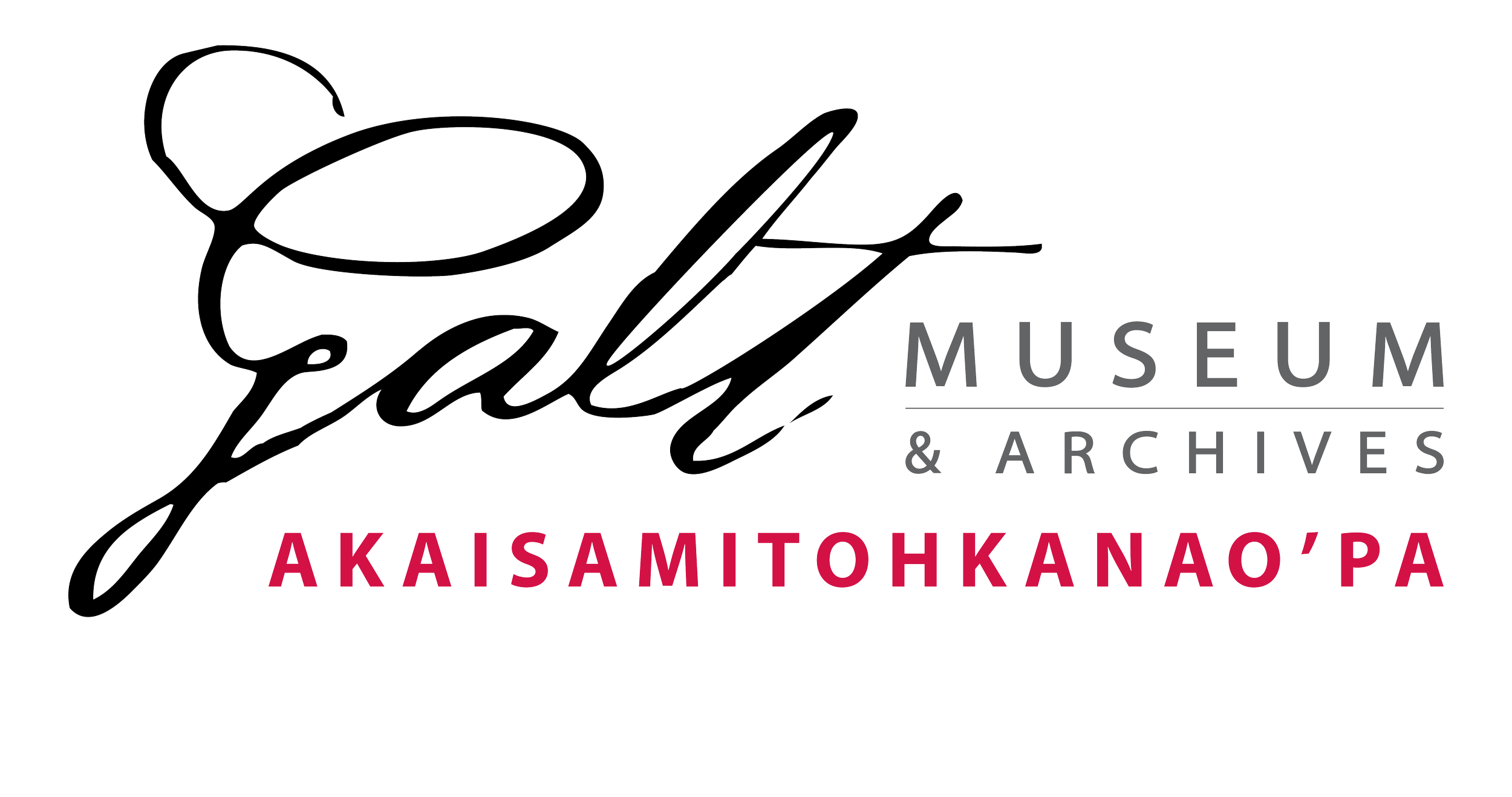Watch Your Phraseology
Sketch of caricatured heads by E. F. Hagell, c. 1905–1915.
Galt Museum & Archives, 19960053165
Avery Raine
Frequent travellers may be familiar with phrase books—dictionaries used during a trip to communicate in basic sentences, even if you don’t understand the local language. You may not know, however, just how far back these tools date! As people from many different cultures migrated to Western Canada in the early twentieth century, John Sandilands published the “Western Canadian Dictionary and Phrase Book,” in 1913. The book outlines linguistic quirks of prairie settlements at the time. Scholar John Orrell, in a 1977 foreword, doubts that the dictionary was actually used by any British visitors; indeed, it’s difficult to miss the dictionary’s tongue-in-cheek self-advertisement as an “interesting souvenir to send to friends in the Old Country.”
Those who want to impress (or just get chuckles from) their friends by using century-old terms can gain a lot from such records, including an array of insults to use! If you want to suggest someone is only motivated by money, you might refer to them as a “boodler.” If they call you a “grouser” in return, you may want to do some self-reflection—that one refers to a grouchy, grumbling person who complains about “anything and everything!” After all that, if you just have the urge to call them stupid, it might be time to bust out the term “lunkhead.”
These records can also show us how certain phrases develop. Some sayings, like “barking up the wrong tree,” have not changed! Others have shifted significantly over 109 years, but still relate to our modern-day versions. “Pickapack,” for example, is defined as “on the back in the manner of a pack, as a child is sometimes carried.” This is clearly what we now call “piggy-back”!
Some other words and phrases are now absent from our vocabulary. “Eleemosynary,” meaning charitable, was described by Sandilands as “a fine-sounding word that has a great future before it.” While that great future was short-lived, with the word dropping sharply in usage after the 1930s, it does appear in a 1925 Lethbridge Herald article about building restrictions in Kitchener, Ontario. Erecting buildings in residential districts for purposes other than private dwelling had recently been outlawed. There were a small handful of exceptions to this rule, however, including buildings with “philanthropic or eleemosynary uses.” We can still hope for some of these outdated phrases to return—particularly “hornswoggle,” meaning to swindle!
These bits of vocabulary are only the beginning when it comes to studying the history of southern Alberta. For more information, visit galtmuseum.com/research.

